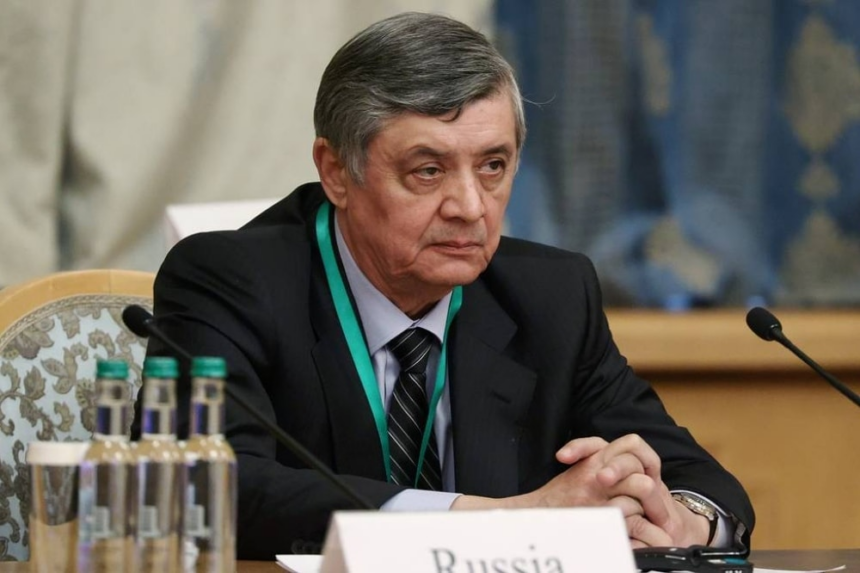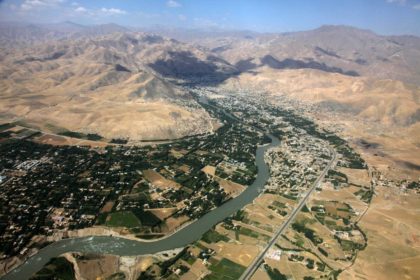RASC News Agency: Zamir Kabulov, the Russian President’s Special Envoy for Afghanistan, has stated that while Afghanistan no longer sits at the center of Russia’s foreign policy priorities, the country retains undeniable geopolitical significance due to its strategic location and potential as a transit hub linking Eurasia to South Asia. In an interview with Komsomolskaya Pravda Radio, Kabulov described Afghanistan as a “geopolitical corridor” a critical link that could theoretically connect the northern reaches of Eurasia, including Russia, to the economically dynamic south of the continent. This potential, he asserted, grants the war-torn country a unique position in Moscow’s long-term regional strategy.
Despite this, Kabulov acknowledged that substantive bilateral relations with Afghanistan are currently hindered by the Taliban’s status as a designated terrorist organization under Russian law. “So long as the Taliban remains on this list,” he noted, “official state institutions whether in the security or economic sectors cannot engage with them in any formal capacity.” In a notable policy shift, Russia’s Supreme Court recently approved the suspension of the Taliban’s terrorist designation, a move that appears to lay the groundwork for more formalized engagement. Judge Oleg Nefedov confirmed that the decision would take effect immediately, though it stops short of granting the Taliban full diplomatic recognition.
Kabulov emphasized that establishing legal and institutional relations with the Taliban is necessary for securing Russia’s national interests in the region. However, he was deliberately vague about the mechanisms of potential recognition or what political or humanitarian concessions Moscow might expect in return. Without such clarity, analysts warn that Moscow risks granting legitimacy to an unaccountable regime without securing tangible commitments in areas such as counterterrorism, human rights, or inclusive governance. Reflecting on Russia’s historical relationship with Afghanistan, particularly during the Soviet era, Kabulov noted that the former USSR provided vast amounts of economic and technical assistance to Kabul aid that was often delivered with no expectation of repayment. However, he stressed that the current era demands pragmatism and reciprocity, not ideological solidarity.
In a subtle but unmistakable rebuke of the Taliban’s authoritarian rule, Kabulov warned that no regime sustained by brute force alone can ensure long-term stability. “A sustainable Afghanistan state,” he said, “requires inclusive socio-economic development that reflects the real needs of its people not a governance model rooted in fear, censorship, and gender apartheid.” While Russia has shown an increased willingness to engage the Taliban, its approach remains cautious and conditional. On one hand, Moscow seeks to prevent Afghanistan from becoming a sanctuary for extremist movements that could threaten Central Asia and Russian interests. On the other, it is wary of appearing to endorse a regime whose systematic oppression of women, ethnic minorities, and journalists has drawn global condemnation.
International observers view Moscow’s policy as an attempt to carve out influence in a post-American Afghanistan, while avoiding the reputational costs of full diplomatic normalization. Critics argue that any engagement with the Taliban must be firmly conditioned on measurable progress in human rights, women’s education, and inclusive governance areas in which the Taliban continues to regress rather than reform. In conclusion, Russia’s recalibrated strategy toward Afghanistan underscores a broader international dilemma: how to contain the security threats posed by Taliban-controlled Afghanistan without emboldening a regime that has institutionalized violence, silenced dissent, and dragged a nation of nearly 40 million people into one of the world’s most acute humanitarian and civil rights catastrophes.






